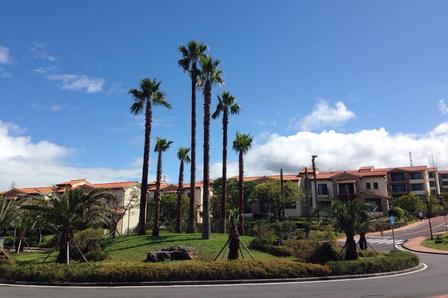A cruise by 1,500 Chinese tourists from Shanghai, China to Japan, on Saturday has sparked a furious debate among Chinese netizens. It might also signal China-Japan relations are on the mend.
The tourists who arrived on the Costa Victoria in Yatsushiro, Kumamoto Prefecture, Japan, on Oct. 20, were warmly welcomed by the locals and government officials.
This is the largest Chinese tour group traveling to Japan since the sovereignty dispute over the islands erupted in September, sparking attacks on Japanese cars and businesses in China.
Some scholars believe the trip signals tensions between China and Japan have eased and China’s senior leaders are trying to “maintain stability” by allowing the tour group to visit.
By the regime can calm the fury over the islands, it is better set for the 18th National Congress that will see the next generation of leaders take their places on the regime’s ruling Standing Committee. The Congress is scheduled to convene on Nov. 8.
Since the Diaoyu Islands (known as the Senkaku Islands in Japan) controversy erupted again in September, China has boycotted traveling to Japan.
The tour sparked some Chinese netizens to denounce the patriotism of those that traveled.
“Is it a traitors’ tour?” reads a comment that went viral on mainland China’s Internet.
A considerable portion of Internet users called the 1,500 visitors traitors and called the Costa Victoria a cruise for traitors.
But other netizens had the opposite opinion, “It is people’s freedom to travel!” “If not to the civilized and democratic country Japan, do you want to go to thugs-filled Xi'an city and eat gutter oil?”
One netizen speculated, “The group is mainly composed by civil servants, and members of the Party and the Youth League!” “I have been saying that only the idiot civilians are against Japan and patriotic!”
Kiichi Matsuki, head of the Yatsushiro Chamber of Commerce and Industry, hoped that the visit of this Chinese tourist group could thaw the frozen relations between Japan and China.
At the same time, Japan’s Deputy Prime Minister Katsuya Okada said on Oct. 21 that the Diaoyu Islands “nationalization” problem was attributed to the Tokyo Metropolitan Government purchasing the islands.
It was the first time he publicly acknowledged the dispute between the two nations over the sovereignty of the islands.
Relaxing Tensions
The trip means “the Sino-Japanese relations are likely to ease,” Professor Liang Yunxiang told Hong Kong based Ming Pao Daily News. Liang, a professor at the Institute of International Relations, Peking University, said that the 18th National Congress will be held soon, and the congress requires peace and stability in China and abroad.
Since Japan also has no intention to fight with China, the two sides released détente signals that have begun with civilian activities, the professor said.
Lian Degui, deputy director of the Asia-Pacific Research Center, Shanghai Institutes for International Studies, did not believe that Sino-Japanese relations would be everlastingly deadlocked due to the Diaoyu Islands’ dispute.
Both sides would like to solve this impasse, and so China sent Luo Zhaohui, head of the Asian Affairs, Ministry of Foreign Affairs, to visit Japan as a preparation for the upcoming Sino-Japanese deputy foreign minister-level consultation. The tour group to Japan has further shown China’s intention to relieve tensions in Sino-Japanese relations.
Lin Quanzhong, a scholar of the Academia Sinica in Taiwan, said, “This tour group relaxed the atmosphere and gave an opportunity for the two sides to take the next step.” Lin also said the upcoming consultation between the two nations’ Deputy Foreign Ministers is worthy of attention.
Read the original Chinese article.
The Epoch Times publishes in 35 countries and in 19 languages. Subscribe to our e-newsletter.



